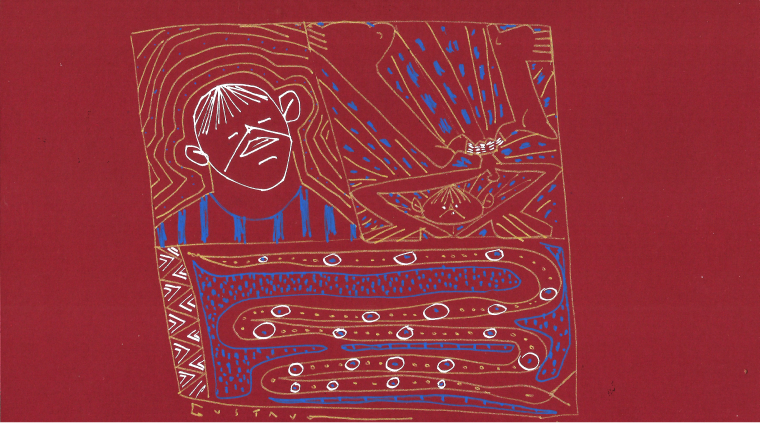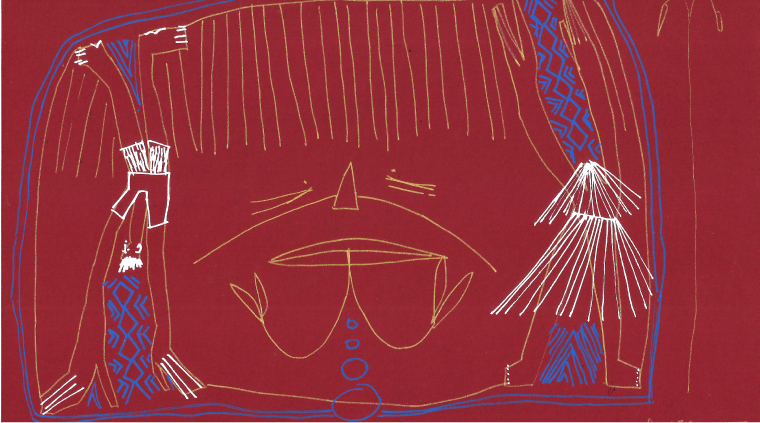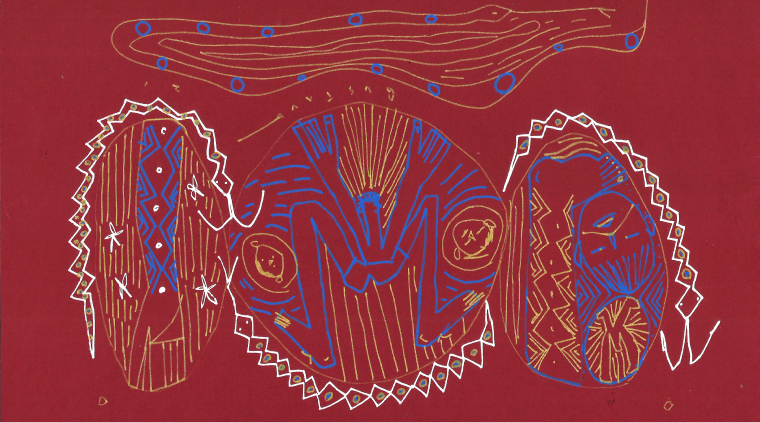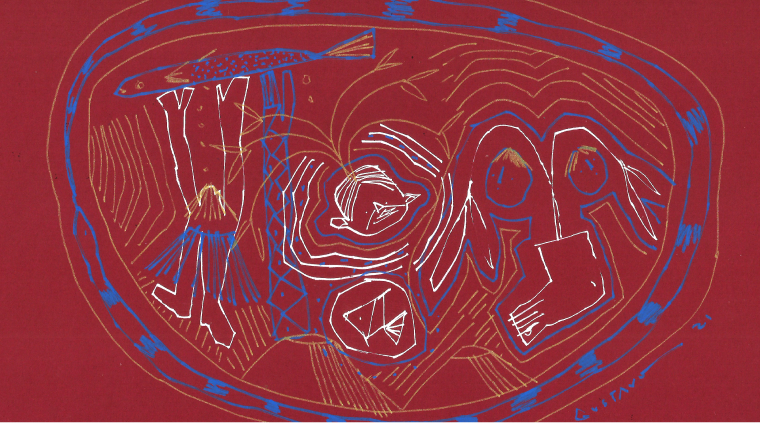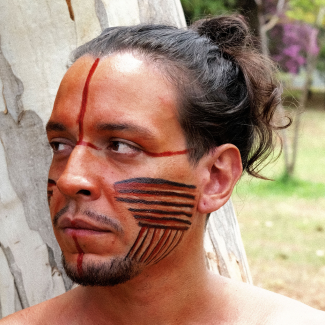
Gustavo Caboco, from the Wapichana Indigenous community, works in the areas of visual arts, literature and cinema. His production uses multiple media, such as drawing, painting, textile, installation, performance, photography, video, sound and text, which function as devices for reflection on the displacements of Indigenous bodies, processes of (re)territorialization and the production of memory. His artistic training began as a child, in the sewing workshop of his mother, Lucilene Wapichana, who always spoke to him about her family and her memories of the Canauanim maloca, in Roraima.
He published the books Baaraz Kawau, in 2018, Baaraz Ka’aupan and Recado do Bendegó, in 2021, Literatura do Invisível and Isso tudo não me diz nada, in 2022, all published by the independent label he founded, Picada Livros. In 2024, he was invited to join the curatorial team of the Brazil Pavilion at the 60th Venice Biennale, alongside Arissana Pataxó and Denilson Baniwa. His participation in group exhibitions includes: “Um Século de Agora”, at Itaú Cultural, São Paulo; “Parábola de Progresso”, Sesc Pompéia, São Paulo; and “Atos de Revolta”, Museu de Arte Moderna, Rio de Janeiro, all in 2022. The previous year he participated in the 34th São Paulo Biennale and in the exhibition “Moquém Surarï”, at the Museu de Arte Moderna, São Paulo; previously, he was in “Véxoa: nós sabemos”, Pinacoteca do Estado de São Paulo (2020), and “VAIVÉM”, Centro Cultural Banco do Brasil, São Paulo, Belo Horizonte, Rio de Janeiro and Brasilia (2019).
